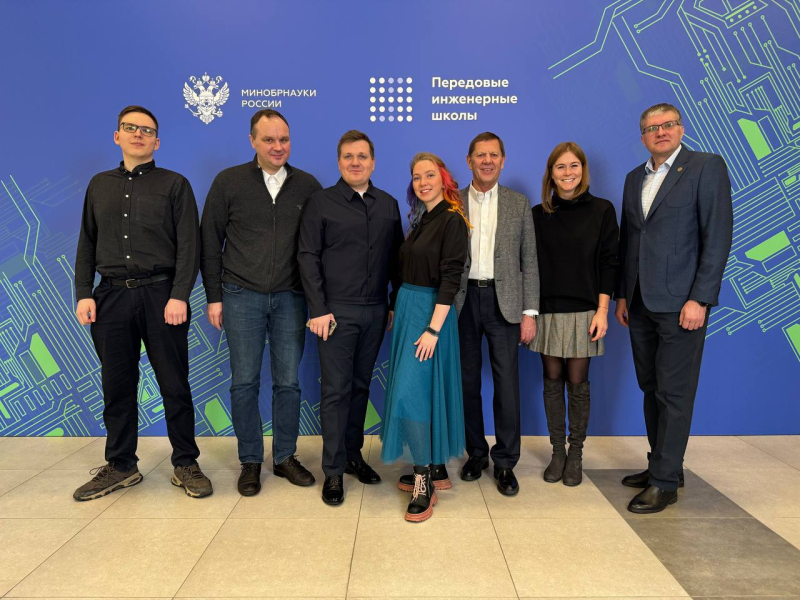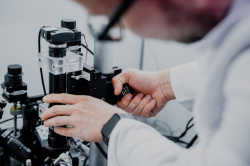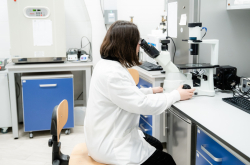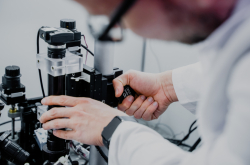Advanced engineering schools have been established at various Russian universities within a dedicated project of the Ministry of Science and Higher Education that aims to train qualified engineering specialists for high-tech branches of economy. ITMO’s Advanced Engineering School (AES) focuses on training Principal Engineers who will lead research groups in chemistry, photonics, biotechnologies, and software engineering. Apart from demonstrating engineering, management, and soft skills, such specialists are capable of developing MVPs (minimally viable products) for the school’s industrial partners – oil-and-gas producers Tatneft and Gazprom Neft, among others. At the school, students combine classes within their educational program with courses on the data-driven approach, product and team management, business analytics, and entrepreneurial thinking.
Having opened its doors on September 1, 2022, the school welcomed its first 52 students from three Master’s programs at ITMO (Machine Learning Engineering, Chemistry and Artificial Intelligence, and Digital Systems Engineering) and the program Artificial Intelligence in Biotechnological Systems of Almetyevsk State Oil Institute. In 1.5 years, the AES student body grew to about 190 students from 8 different programs.
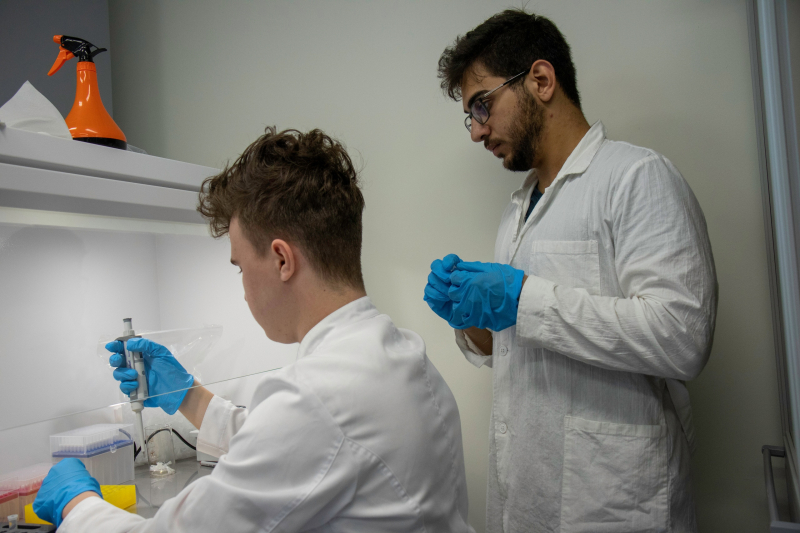
AES students at a science school in Almetyevsk. Photo by ITMO's Advanced Engineering School
“Last year, one of our main challenges was to develop joint educational programs with our partners. In partnership with Tatneft, we’ve launched two new Master’s programs at Almetyevsk State Oil Institute: Software Developer and Industrial Biotechnology. Additionally, we’ve collaborated with Mordovia State University on the program Optical Infocommunication Technologies. Apart from educational activities, we are also continuing our research projects with industrial partners. For instance, last year we secured over 286 million rubles for research and infrastructure development from Tatneft, Russian Railways, Perspective Technologies Agency, Pharmasyntez, and other companies,” shares Alexander Vinogradov, the head of ITMO’s AES.
Student teams also receive funding for their projects. For instance, last year, in collaboration with Tatneft, students created two projects nearly from scratch and attracted 18 million rubles in investments for their further development. One of these projects is a smart autonomous gyrochair for people with disabilities that has a lightweight design and is capable of carrying more weight. The second project is a sensor for online monitoring of glucose levels with an app that analyzes and predicts health indicators.
This year, the team of ITMO AES will keep on developing several projects started in 2023. Among them is an automated testing system for monitoring the rate of contamination with corrosive microorganisms in products of oil extraction, transportation, and storage. This project will help monitor the quality of oil, quickly and accurately predict its contamination, and conduct timely antibacterial treatment. Currently, the prototype is capable of detecting six target microorganisms, and in the future the device can be adapted to detect other forms of microorganisms.
Another project lies in the realm of customized genetic screening – namely, AES researchers have developed prototypes of a molecular microchip and a software-hardware system that can detect and interpret fluorescent signals. The project makes it possible to efficiently solve a wide array of personalized healthcare tasks, including the diagnostics of cancer, diabetes, and heart disease. The researchers also set themselves a separate task of adapting microchips for health monitoring and efficient breeding of cattle. Currently, the microchip can detect up to 400 genetic targets; its capacity will be increased to include 100,000 genetic targets in the nearest future.
Another prototype, a multiomics digital platform, accumulates information about chemical reactions from all around the globe and quickly detects the necessary compounds with required properties. With this AI service, researchers at ITMO’s AES can test their hypotheses before synthesis and predict the reactions that will occur, their products, and the viability of such synthesis. The multiomics AI platform will accelerate the early development stage of medicines, allowing the researchers to focus only on working with the most fruitful reactions right away.
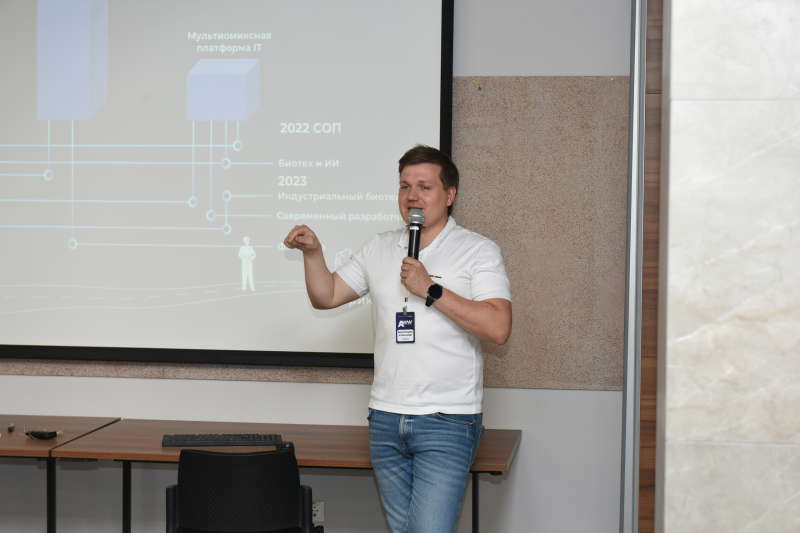
Alexander Vinogradov. Photo by ITMO's Advanced Engineering School
“This year, we will continue promoting strategic partnerships with companies headquartered far from St. Petersburg. For instance, we will launch a second Master’s program at Almetyevsk State Oil Institute called Artificial Intelligence in Oil Chemistry, establish framework agreements with new major partners, host another BIOCON international conference, and organize other major educational events,” adds Alexander Vinogradov.
Moreover, a new building that will host AES’ project office and classrooms is set to open at ITMO’s Lomonosova campus. The 1,500-square-meters area will house modern genetic engineering laboratories, a pilot laboratory for oligonucleotide synthesis, a bioinformatics laboratory for developing digital interfaces for genomics and genetic engineering, highly sterile labs for microchip production, as well as a large coworking space where student teams will be able to work on digital projects.
